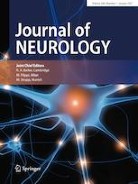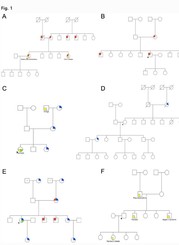Familial autoimmunity in neurological patients with GAD65...
Antibodies against glutamic acid decarboxylase 65 (GAD65) are found in a clinically diverse group of immune-mediated neurological disorders. Despite this clinical heterogeneity and the controversial pathogenic role of GAD65 antibodies, these disorders seem to have, at least partially, a shared pathophysiology, since the co-occurrence of more than one of these syndromes in a sole patient is not uncommon. Furthermore, patients with GAD65 antibodies and neurological disorders often present with systemic autoimmune comorbidities, mainly type 1 diabetes mellitus (T1D) and autoimmune thyroid disease, in which GAD65 antibodies may also be detected. This polyautoimmunity likely reflects a wide and unspecific loss of self-tolerance underlying the pathogenesis of GAD65 neurological disorders. In addition, the report of some familial cases of GAD65 neurological disorders also suggests that genetic, inherited factors may play a role in the immune tolerance breakdown. However, the presence of autoimmune systemic diseases among the relatives of GAD65 neurological patients, which might further indicate a genetic basis, has been poorly described so far.




